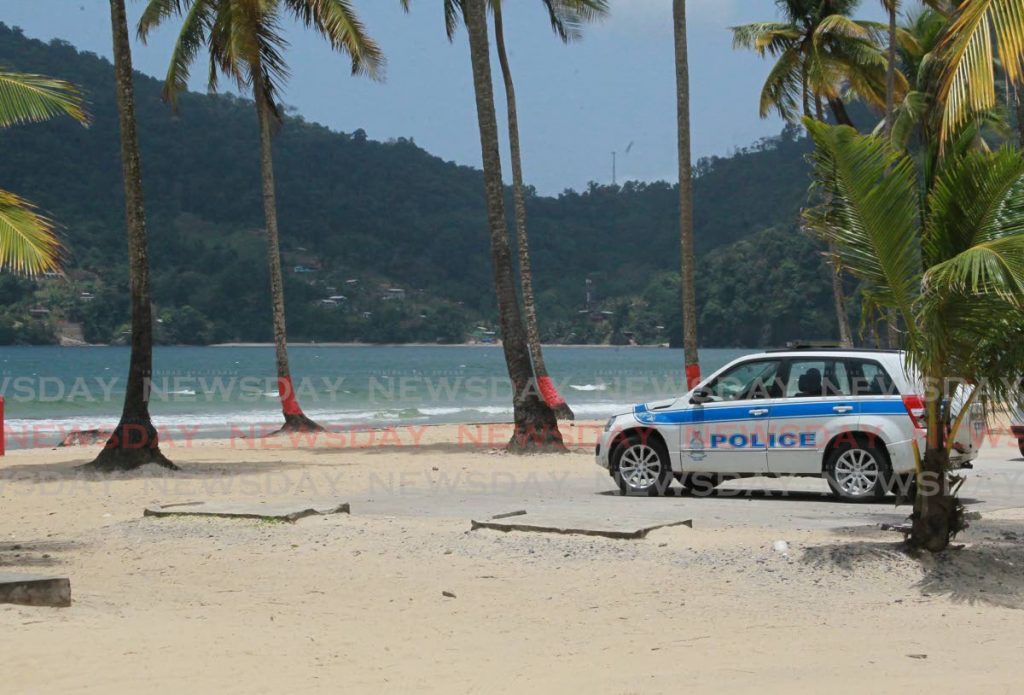A tale of two views on how to deal with covid19

RISHI MAHARAJ
"It was the best of times, it was the worst of times, it was the age of wisdom, it was the age of foolishness, it was the epoch of belief, it was the epoch of incredulity, it was the season of Light, it was the season of Darkness, it was the spring of hope, it was the winter of despair.”
Within the last week this opening paragraph to the Charles Dickens classic, A Tale of Two Cities has kept playing around in my mind.
During that time, we have seen a dramatic increase in the number of reported positive covid19 cases, averaging approximately 54 cases per day over a two-week period.
As a result of this unprecedented spike the minister of health announced that beaches would be closed and in house dining at restaurants, bars and cinemas would no longer be allowed while public gatherings were reduced from ten to five. It was the second rollback of restrictions announced in April, after the minister reintroduced restrictions on recreational sports on April 1 after an increase in cases in mid to late March. Additional measures announced yesterday include no audiences for entertainment and concerts at public places, fewer people in places of worship, and for weddings and funerals. Public servants will work on rotation, at 50 per cent, once more.
Some of these newly imposed restrictions have led to a large public outcry particularly on social media by many who see their imposition as a final death nail to many already struggling businesses, a creator of massive unemployment and will further damage a fragile economy already heavily impacted by the pandemic and dwindling foreign exchange.
In this tale of two opposing views argument of public health vs economic survival, who has the upper hand and which position is the correct position?
Everyone can agree that any human life is highly valuable. Basic economic reasoning therefore suggests that, given the risks of covid19 particularly to vulnerable populations, we should be willing to withstand large economic costs to prevent the risk of substantial numbers of deaths. This is particularly true if most of those economic costs are temporary.
However, one year on into the pandemic has seen many (myself included) begin to suffer from pandemic fatigue. Many have lost their jobs; businesses have either scaled back or closed completely. As I would have mentioned in previous columns, my wife and I have a small business and attended many crafter markets. However, these restrictions have impacted us and many of our friends in this space greatly.
I agree that all points of views are valid in the eyes of those making the comments. I get the sense however that we are spending more time talking at each other than talking to each other.
I don’t claim to know all the answers. What I do know is that we seem to be locked in an inane debate about whether what we are doing is better than nothing.
We should instead be focused on which policies minimise the combined long-term health and economic costs of this pandemic. Just because lives are valuable, and so action to save them is better than inaction, doesn’t mean specific lockdowns or business restrictions are optimal policy. Everyone can agree that we need to find the most cost-effective way of dealing with the public health crisis to enable economic activity to return to normal.
In fact, big errors of thinking abound on all sides in this debate, from the “whatever it takes” crowd right through to the “cure is worse than the disease” view.
As noted by one writer, asking the right questions becomes more important. With so many sources of large-scale social, economic and public health issues to manage, asking how to minimise one, without considering the effect on others, may be disastrous.
Getting to the right questions quickly however requires engaging a diverse set of viewpoints early and investigating lots of questions, including long-shots. Many of these lines of inquiry will turn out to be dead ends, but because extreme uncertainty limits our ability to predict which will eventually be useful, a “portfolio” approach to investigating policy questions is likely to pay off if emerging evidence points to the need to change tack.
Research and expertise from single fields can dominate policy discussions with the consequence that decisions are taken without due consideration of trade-offs. This makes collaboration crucial experts in particular areas may not ask obvious questions about secondary impacts on other areas if they’re not used to thinking about them or don’t have informed data or experience to guide them.
Going forward I therefore suggest as best as I can the following approaches that can lead to more informed decision making and responses to this ever-changing enemy, a diversity approach to decision making, regular updating of data, flexibility and adaptation in policy response and transparency of decision-making.
These are just my suggestion to achieve a more synergistic approach to dealing with the onslaught of covid19 on our lives, businesses, and our economy. We must innovate in different ways to manage and survive the crisis and then have the ability to navigate the new world that will emerge, hopefully in the not-too-distant future.
Rishi Maharaj is the executive director of the Equigov Institute, which provides consultancy, training and research in data privacy/protection, governance, information access, transparency, and monitoring and evaluation.


Comments
"A tale of two views on how to deal with covid19"